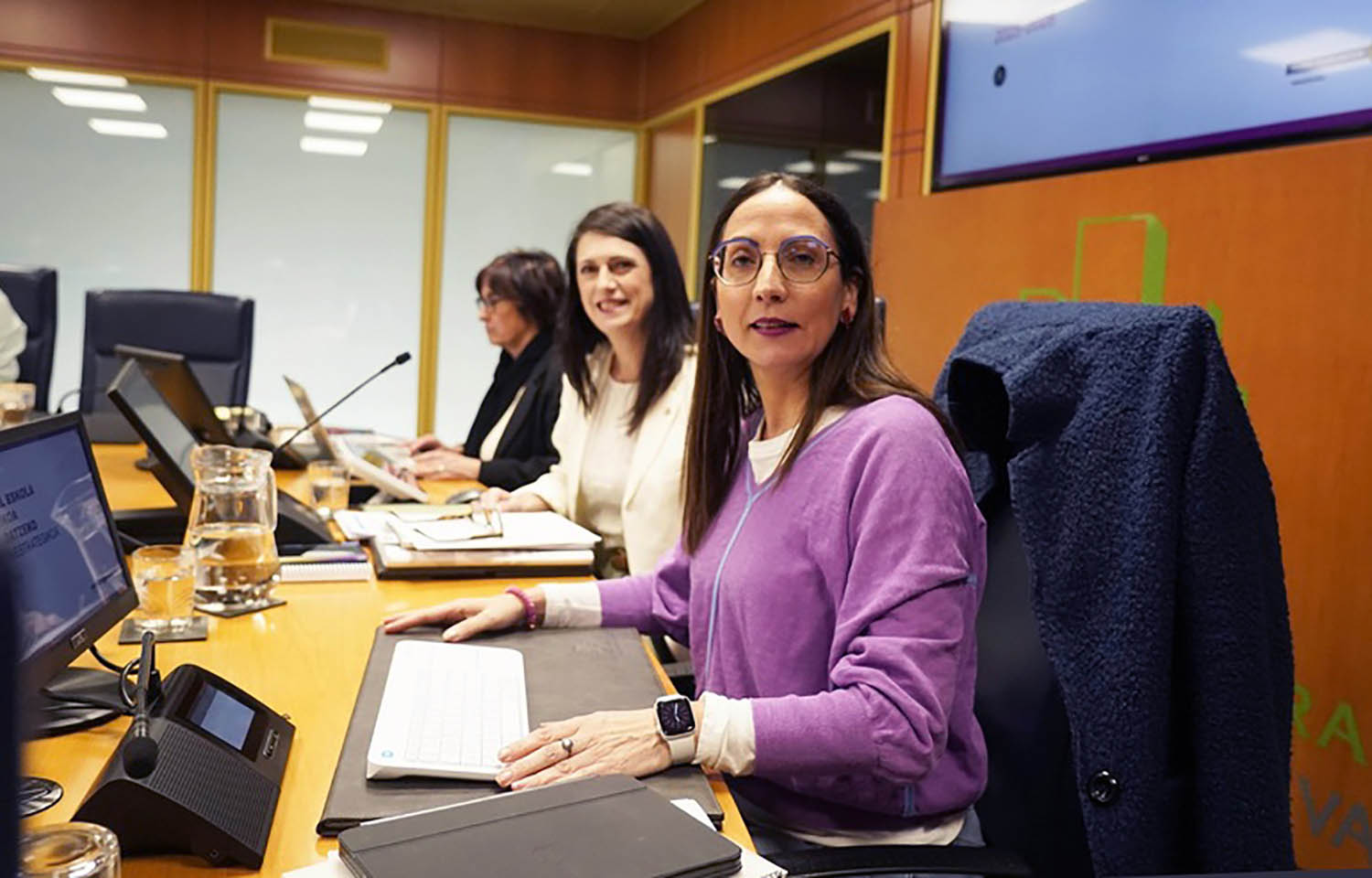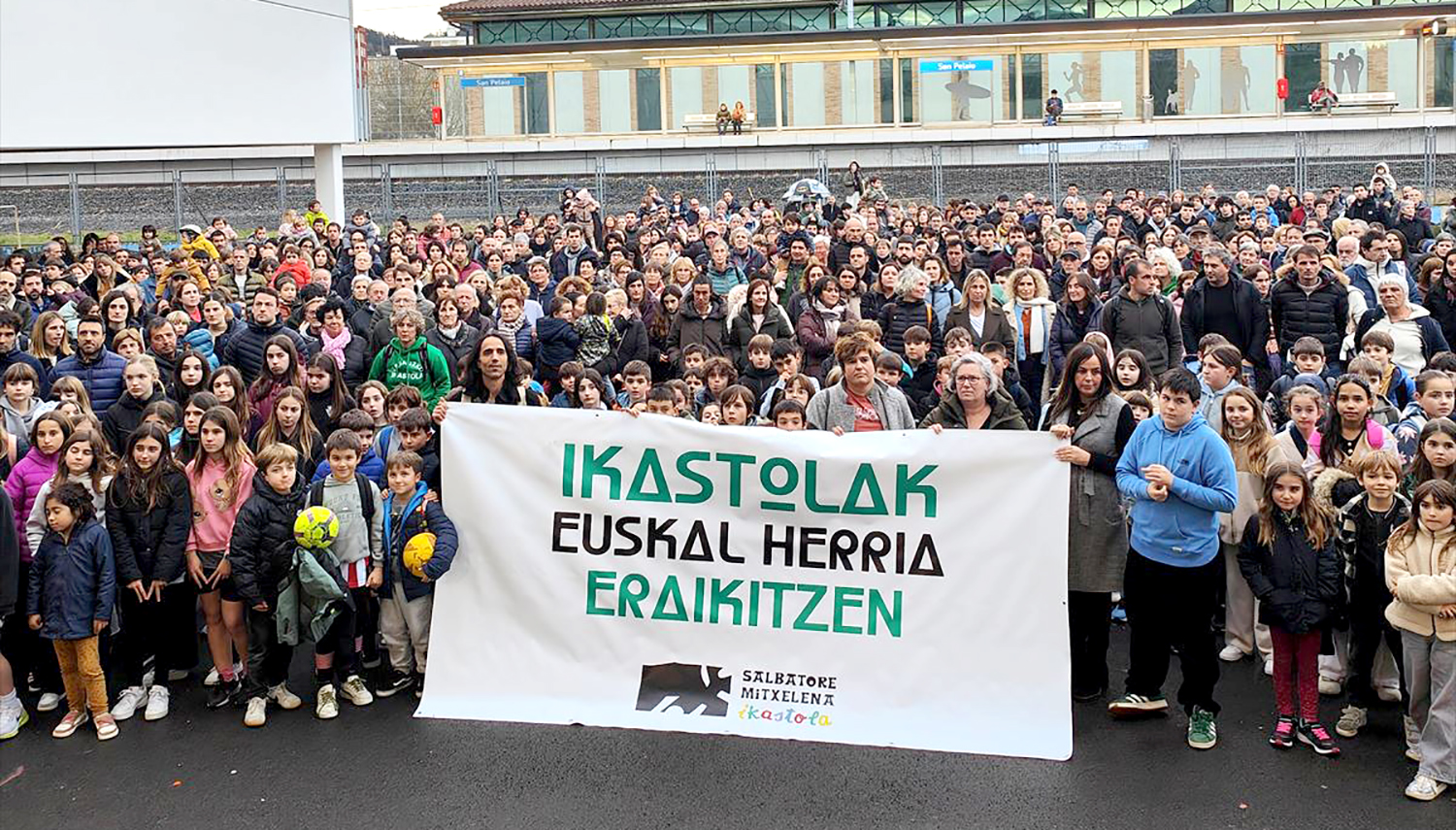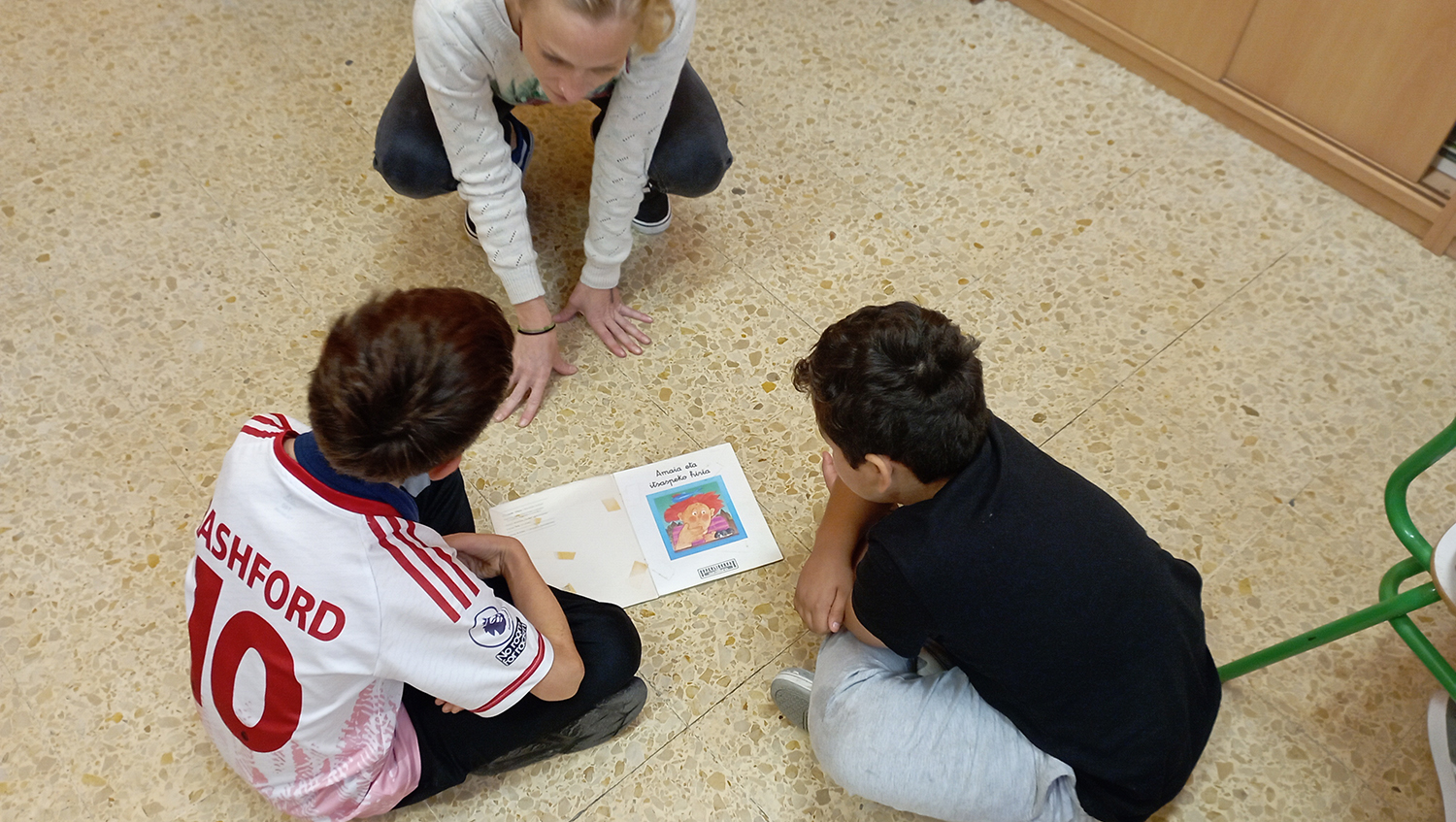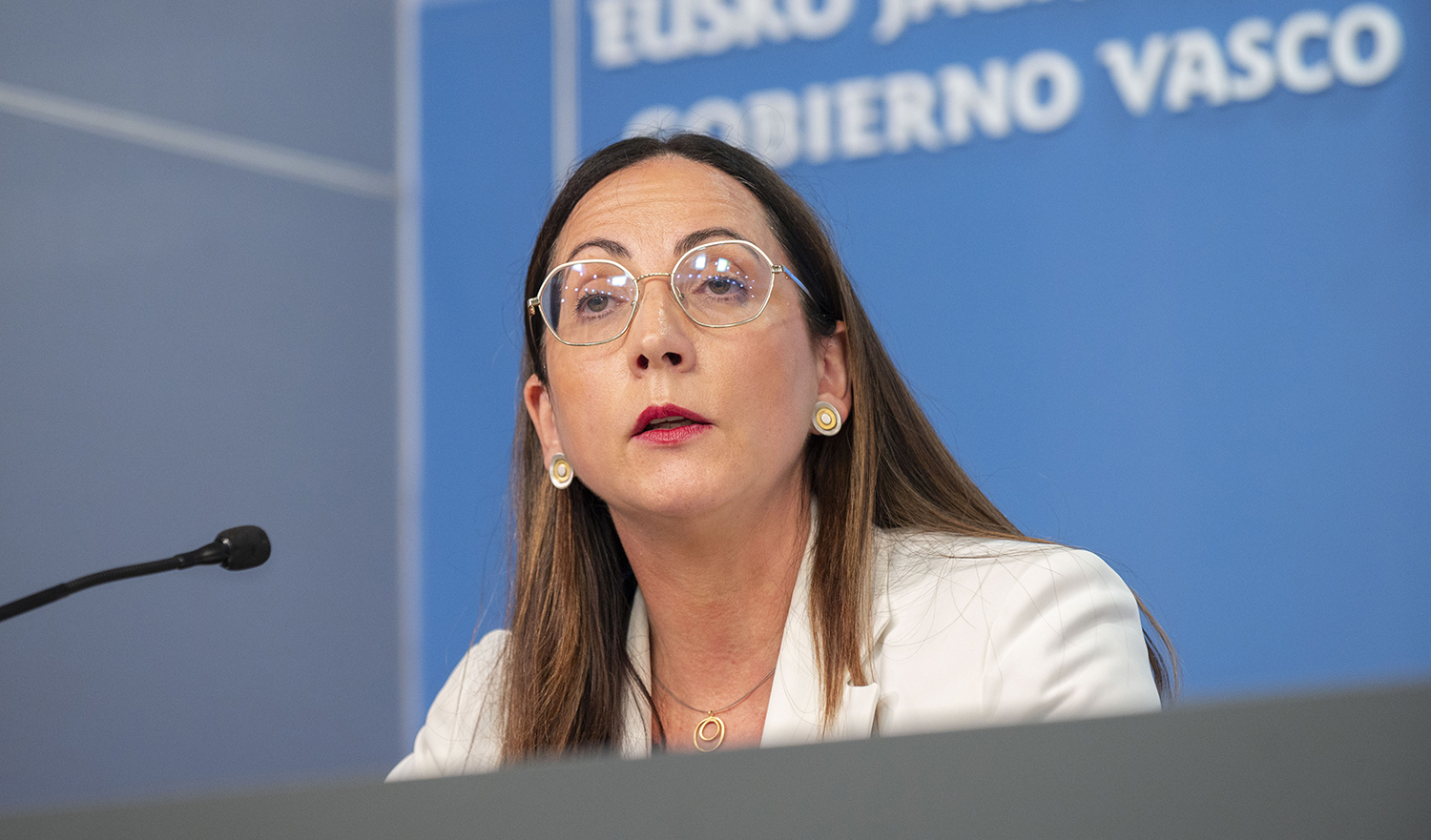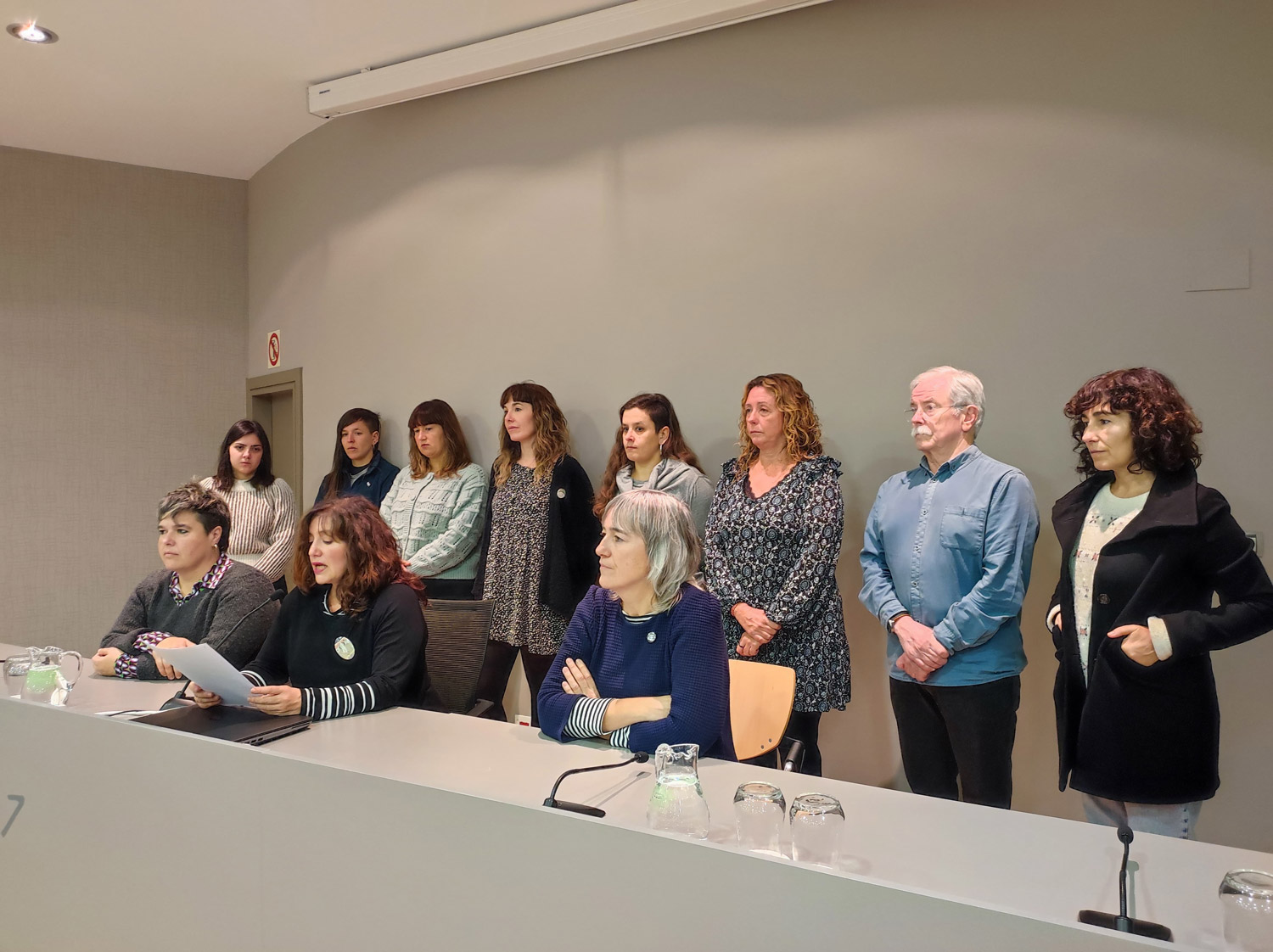EH Bildu calls on the PNV and the PSE to clarify whether they want to shield or transform language models
- EH Bildu criticises the "change of script" of the amendment that PNV and PSE have agreed at the last moment for the current language models to be included in the CAV Education Act. However, the PSE and the PNV have given contradictory versions of the amendment and call for a single interpretation. From there on the subject of languages, "we will try to feed the debate in a constructive way and not the artificial debate they have put on the table".

"Reality has overcome linguistic models long ago"
Pello Otxandiano, head of the EH Bildu program, denounces the change of script: "For two and a half years many texts have been used and nowhere has there been reference to linguistic models, precisely because the current situation of education does not require it and we believe that the models for the future must be overcome. But yesterday, at the last minute, the PNV and the PSE have included the reference to linguistic models and brought to the centre the debate on linguistic models, when this was not the focus of the debates so far". Otxandiano made it clear that linguistic models do not serve to manage the current diversity of classrooms, and that "reality has exceeded linguistic models long ago". It sets as an example a classroom in which the newly arrived student of Pakistan, newly arrived from Venezuela, who brings Basque from home…, where surely all the linguistic models mixed will be applied.
"The experience we have is that linguistic models do not guarantee the possession of official languages at the end of compulsory education. The objectives of the law [to reach level B2 at the end of compulsory education] are not supported by models, model A, model B, or model D".
The PSE tooth flies the table
"It's clear what happened. The PSE has put a red line, has thrown the ordago, has said publicly that linguistic models must be guaranteed, incorporated and shielded, because for him it is politically important, not with educational arguments, and the PNV has bought him the framework," Otxandiano criticised.
However, the PSE and the PNV have read the amendment differently: "The PSE representative says that the amendment incorporates the three linguistic models into the draft law, that the current models are guaranteed and shielded (and that, therefore, the family wishing to study in model A will now and in the future). On the contrary, Education Advisor Jokin Bildarratz has pointed out that language models should be updated, because they do not meet the objectives of the educational agreement, and that something else needs to be built, changed, updated, transformed."
The issue of contradictory versions is not serious and calls on both sides: "That they should be able to give a joint press conference and give a unique interpretation of this amendment, what it is and what its objectives are. It's minimal."
From there "we will try to feed the debate constructively". He points out three statements as a starting point for the debate, asking whether PNV and PSE add to the statements: "Linguistic models are not valid for managing the socio-linguistic diversity that we currently have in schools; linguistic models (A, B, D) do not guarantee that pupils have the two official languages (reaching level B2); the fourth title exceeds the system of linguistic models". That is, the fourth title of the law requires the centers to elaborate the linguistic project, how does this relate to the maintenance of models A, B, D?
Otxandiano mentions a political reference for the debate (the agreement on language reached in Catalonia last year, including the CSP) and five key questions: "What is the theoretical framework that we take as reference in the fourth title? What is the strategic framework? What instruments have we not had so far to develop language projects? What new resources do we need to develop language projects? What development do we see in this law over the next ten years in terms of languages? ".
You will find detailed information about the CAV Education Act on the channel dedicated to the ARGIA law.
Why concerted teaching?
The new Education Act adopted by the CAV against most public school officials aims to ensure that concerted education is free of charge through the financing of public authorities. The Spanish State has also announced a significant increase in public... [+]
Hunters, Marianistas, Niño Jesús, CEU San Pablo - Virgen Niña, Carmelitas, Presentation of Mary, Vera Cruz, NClic, San Viator, Escorapias, Scholapios, Bárdarias, Nazareth, Immaculate Conception, Hogar San José, Egibide. More Olabide by Eusko Ikastolen Batza. Finally, the... [+]
In response to the numerous statements of the new Education Advisor, Begoña Pedrosa, Law 17/2023 on Education will be implemented at the beginning of the course, approved in Parliament with the sole support of the PNV and the PSE. This implementation will entail the application... [+]
Who orders us ...?
The Basque Government has just been set up and the Minister for Education will be Begoña Pedrosa. Being a vice-counselor in the previous legislature and being one of the founders of the new Education Law passed last December, we are allowed to ask some... [+]
The recently passed Education Act is as bad as it is new. Throughout the processing process there has been a broad social sector against the spirit of this law, and this opposition has been greater in the face of its adoption. We want to make public the assessment and reflection... [+]
The new Education Act, which had to be born of consensus, was adopted in anger and disagreement. The lack of agreement is due to the public-private question and linguistic models. A lot of pity.
In this we follow the Spanish model, because in the CAPV we are not able to lay... [+]
Those of us who write and sign these lines are young people between 20 and 26 years old who have joined us in the context of the generational relay of Euskalgintza. In our case, we have decided to contribute to the struggle of the Basque Country in the Basque Country from... [+]








